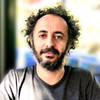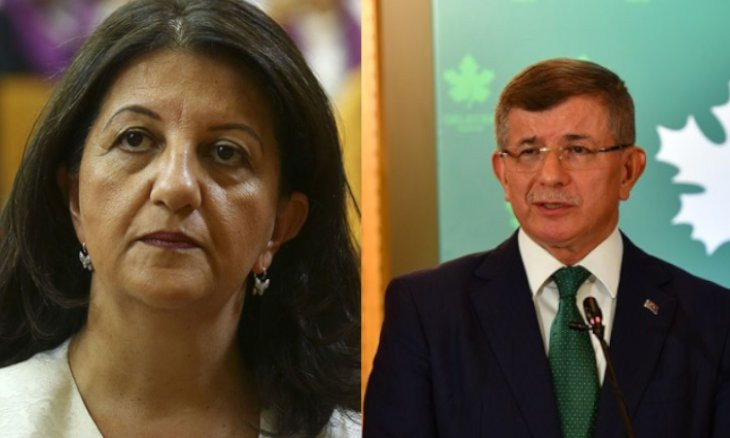Here’s to hoping Sedat Peker never gets caught
The most important secret Sedat Peker is holding onto is information on the government’s organized attack against people, especially the Kurds, between June 7, 2015 when the AKP lost its majority via general elections and November 1, 2015 when it came back to power. Peker cannot be expected to disclose this information. We should instead look to Ahmet Davutoğlu who was prime minister at the time.
On June 13, countless people waited with baited breath to see whether exiled mafia boss Sedat Peker has been caught after an unconfirmed story broke saying he had been. Those who regard Peker as ‘the enemy of the enemy’ went so far as to pray for him not to be caught. At last, Peker announced that he was indeed safe and those people who have come to rely on his confessions let out a collective sigh of relief.
This intense interest in Peker is a reflection of Turkish society’s desire to see with clear eyes and its need for both change and accountability.
It is clear that Turkish society desires to change the government which has become a burden on it, but is still unsure who to replace it with.
The sections of society which should give this attention to opposition leaders on Tuesdays when parliamentary group meetings are held, instead wait for Sunday mornings when Peker releases new videos. This is not a result of Peker’s ingenuity, rather, it shows the insufficiency of the opposition.
If Peker, who was not silenced today, is silenced tomorrow, will his public audience return to their Sunday solitude in their stuffy rooms in their great desperation? If the opposition leaders fail to make Tuesdays something to look forward to, then yes. If the opposition continues to opt out of Peker’s ‘game,’ then yes.
Peker’s exposure of his former accomplices in order to save himself was an important development for the opposition. However, the opposition, which after the December 17-25 operations, stopped tracking the government’s bad acts, did not Peker in order to track down the criminal files. In the words of Sırrı Süreyya Önder, “Is what was done publicly less grave than what Peker is revealing?”
There has been a massacre similar to the Roboski massacre in this country. The truth stands before us: Which of Peker’s revelations could be bigger or more horrifying than the Roboski massacre, after which not even one corporal was prosecuted?
Or was the June 7 election and its aftermath scarier than usurping a marina? If a society isn’t excited by such open information and doesn’t mobilize, but instead is desperate to find out what minister has a relationship with what criminal, then what is the opposition to think?
Even under the current oppression, journalists can trace a couple of Peker’s clues to reach huge truths; Why does the opposition focus only the free coffee the AKP got from Peker to distribute to its constituents?
In his tweet on June 13, Peker insinuated that he was keeping the door open to negotiations with the government by saying, “If the necessary steps are taken during this period”, then his 9th video would be the ‘season finale.’ Meaning he would not reveal the big secrets he has in his pocket.
The most important secret Peker is holding onto is information on the government’s organized attack against people, especially the Kurds, between June 7, 2015 when the AKP lost its majority via general elections and November 1, 2015 when it came back to power.
This secret doesn’t just tell the story of what was done to the Kurds. All kinds of crimes, every stolen penny, and injustice done since 2015 are encapsulated within it.
Peker cannot be expected to disclose this information. We should instead look to Ahmet Davutoğlu who was prime minister at the time and is now an opponent to the government. So, why doesn’t the opposition and Peker’s ‘viewers’ force Davutoğlu to disclose the details?
Since then, numerous state activities, based on economic or political interests, have been ‘laundered’ by the ruling alliance. They unite in war policies. (Of course, let’s not forget that the coup attempt of July 15, 2016 was later referred to as ‘the Grace of God’)
Last week, Erdoğan said that, “The elections of June 7, 2015 should never be forgotten.” Indeed, it’s a date that should never be forgotten. After those elections that ousted the AKP from power, the peace process came to an end, although it was the most important step in Turkey’s political history. Then, a bloody war began. Hundreds of people were massacred. The biggest of those massacres took place in the heart of Ankara on Oct. 10, one day after Peker threatened to “bleed out their guts” at a rally “to condemn terror” in the Black Sea town of Rize. Following the massacre, the AKP Chair at the time, Ahmet Davutoğlu, said that AKP votes increased in the public opinion polls.
Then, the elections were ‘renewed’ and the AKP came to power again, but this time in a new alliance. War was the main policy that brought the alliance actors and the AKP together. The opposition and society were either enslaved by this policy and turned a blind eye to it, or benefited from it.
The existing situation enabled many dark forces to grow. Those who wanted to fight them, and demanded democracy and peace, were presented as external threats and associated with terrorism.
The July 15 coup attempt, which was seen as “the Grace of God,” led the
AKP-MHP government to liquidate the Gülenists as well as accelerate the witch hunt for the country’s democratic forces. Hundreds of thousands of people were suddenly under investigation. Scientists were expelled from universities, peace and democracy supporters were ‘cleansed’ from civil society, dissidents were cut off from the outside world, and public movements were ‘cleared’ from the streets. As the darkness transformed into a prison for all of society, interest groups found a safe nest for profit, corruption, theft and plunder.
That nest was too small for both the society and interest groups as a result of ‘the alliance for war’ on the declining economy. So, interest groups and gangs began throwing their ‘brothers’ out of the nest to make more room for themselves. As one of those thrown from the nest, Peker’s confessions became a mirror for the social segments who had eyes but didn’t want to see, who had ears but didn’t want to hear, and who had hearts but didn’t want to feel. Davutoğlu was the first one thrown from the nest and he knows even more than Peker does.
A Kurdish phrase goes, “I’m showing you the bear, but you’re asking for its footprints.” The bear is right in front of us, but we are too afraid to face it, and are instead infatuated with its footprints.
As a result of Peker’s confessions, the war-based interest nests, which could until now repel outside interventions, have begun to weaken from the inside. Thus, all kinds of crimes hidden under a nationalistic mantra became more visible.
Now the question is, whether this crack will give the government an opportunity to pull itself together and recover, or if the crack will expand?
The attitude of the opposition, who are expected to break in from the outside, as well as the emergence of new Pekers, who are trapped on the inside, will be the determinants of the situation going forward.
Still, the opposition would rather talk about the free coffee Peker distributed to the AKP-MHP constituencies. The CHP opposition’s spokesperson, Faik Öztrak’s scandalous statement last week read, “If free coffee packets were distributed to people, this must be investigated.”
The bear stands in front of them, but they’re putting their nose into its footprints.
Yes, society wants a government change. Usually, an existing government is replaced by its alternative. But the opposition is showing us that they are no different from those in power. Thus, is the situation in which those who want change and expect Peker not to get caught more disgraceful than the opposition’s current position?


 HDP co-chair calls on Davutoğlu to 'speak the truth' about 2014 Kobane protestsPolitics
HDP co-chair calls on Davutoğlu to 'speak the truth' about 2014 Kobane protestsPolitics Five years on, still no justice for victims of Ankara October 10 MassacreHuman Rights
Five years on, still no justice for victims of Ankara October 10 MassacreHuman Rights